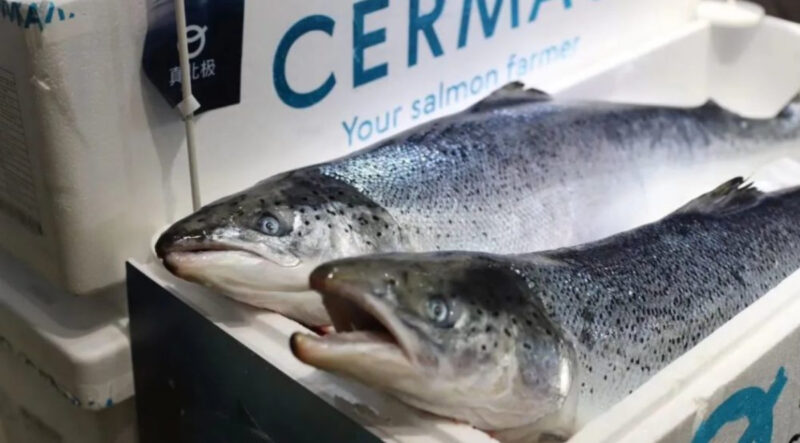Trucker border vaccine mandates pinches Canada’s seafood industry
Trucker vaccine mandates and marine shipping disruptions threaten billions of dollars’ worth of Canadian seafood exports
By Fabian Dawson
SeaWestNews
Canada’s seafood industry, already strained with supply chain issues, is warily watching for potential impacts of the new vaccine mandates for truckers, who transport billions of dollars’ worth of farmed salmon, crabs and lobsters across the border every year.
But so far the disruptions at the land borders have been minimal, say industry sources.
“It has been challenging for sure…we were (only) slightly impacted because almost our entire group has been vaccinated,” said Ryan Brush, general manager of Aquatrans, a specialized transporter of frozen and temperature sensitive food products.
Paul Lansbergen, President, Fisheries Council of Canada told SeaWestNews that supply chain logistics are difficult right now regardless of how you transport your products.
“Our sector relies less on cross-border trucking than other food sectors. For our members, marine shipping disruptions have been challenging and costs are up significantly,” he said.
“That has been getting more executive attention lately but it could vary depending on the target markets for individual companies.”
The new mandate, which took effect on Jan. 15, states that all Canadian cross-border truckers must show proof of vaccination at a port of entry. Truckers travelling within Canada are not affected by these new measures. The United States has implemented a similar mandate.
The Canadian Trucking Alliance (CTA) and its counterpart in the United States said as many as 22,000 Canadian truck drivers and 16,000 US truck drivers may be prevented from crossing by mandates imposed in both countries.
CTA president Stephen Laskowski said the vast majority of the Canadian trucking industry is vaccinated, with the overall industry vaccination rate among truck drivers closely mirroring that of the general public.
In 2020, the US imported over 256,000 metric tons of seafood from Canada, worth US$2.9 billion according to the US National Marine Fisheries Service, reported Intrafish.com
Of those imports, salmon — mostly farmed — is one of the most important, and one of the few species that moves fresh year-round from Canada to the United States. In 2020, just over 86,000 metric tons of Canada’s seafood exports were salmon, worth $670.8 million, said Intrafish.com
In British Columbia, where salmon farmers are under pressure from activists and the Liberal government, to transition their open-net operations to land, farmed salmon remains the top seafood export.
Consistently ranked as the 4th largest farmed Atlantic salmon producer in the world, farmed salmon continues to be BC’s most valuable seafood export with a 12 per cent share of total agrifood and seafood provincial export sales.
After Atlantic salmon at $541 million, the highest value seafood exports were $159 million in crabs; $103 million in hake; $56 million in Sockeye salmon; and $55 million in geoduck clams.
The United States at $769 million is the top seafood export market for British Columbia’s wild and farmed fisheries.
Meanwhile, In a joint media statement , Transport Minister Omar Alghabra, Labour Minister Seamus O’Regan, Employment Minister Carla Qualtrough and Stephen Laskowski, the president of the Canadian Trucking Alliance (CTA), said COVID-19 vaccines are the “most effective tool to reduce the risk of COVID-19” and protect public health.
“The global COVID-19 pandemic continues to have an impact on all Canadians. Within the trucking industry, the pandemic has led to unprecedented challenges. Despite these circumstances, truckers have delivered for Canadians,” the statement said.
The comments comes as a large cross-country convoy of truckers begin arriving in Ottawa for a weekend protest rally against the new vaccine mandates.
Farmed salmon is BC’s most valuable seafood export. Image courtesy of Cermaq.


Comments are closed.